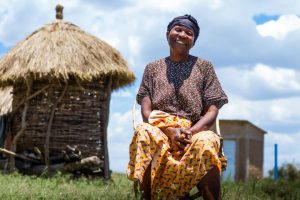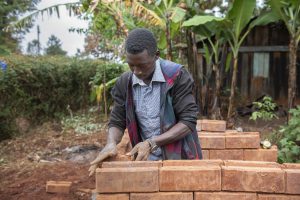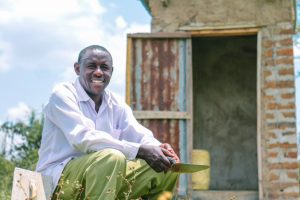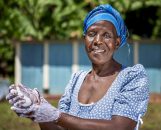2.5 billion people worldwide do not have access to safe sanitation. FINISH (Financial Inclusion Improves Sanitation & Health) Mondial is a public-private partnership mobilising local communities, governments, financiers and businesses creating markets to construct toilets which safely manage human waste for local circular sanitation economies across East Africa and South Asia.

FINISH Mondial (FM) is a programme working towards healthier and socio-economically empowered communities. It is a joint initiative by WASTE, Amref Health Africa and the Netherlands Ministry of Foreign Affairs. The programme started in India and Kenya, and is now also active in Uganda, Ethiopia, Tanzania, and Bangladesh.
History
FINISH started in 2009 in India. When a micro-finance crisis broke out in 2012, new partners joined. They used different models, such as a cooperative model and a bank-self help group linkage model. Though microfinance institutions stopped lending, FINISH scaled through an icnrease in the number of local partners.
In Kenya, the link between financial inclusion and sanitation did not emerge easily. Whilst costs of sanitation systems are relatively low, FM uses a number of approaches to reduce costs; new local materials, prefab etc.

FINISH Mondial envisions a world in which people are financially included and have access to sustainable by mobilising the supply side of sanitation while integrating financial resources into the value chain. The programme raises awareness on and creates a demand for sanitation services amongst end-users: people are aware of the need of a safe and durable toilet, want to buy one and can afford it. Local people are trained to build them.
Aqua for All has been a partner in the programme and has worked with FINISH Mondial partners on the 2020-2025 strategy. The programme is set to become a € 440 million sanitation programme by 2025, leveraging grant funding locally at a ratio of 1:10, working to increase commercial financing for the severely underfunded SDG6 (clean water and sanitation) agenda.

Ambition
By 2025, the partnership will have constructed at least 2 million safely managed toilets in total, reached 10 million people, contained and recycled 175,000 tonnes of faecal sludge (linking local sanitation and agriculture sectors for strengthened circular economies) and created 16 million workdays in construction alone.







